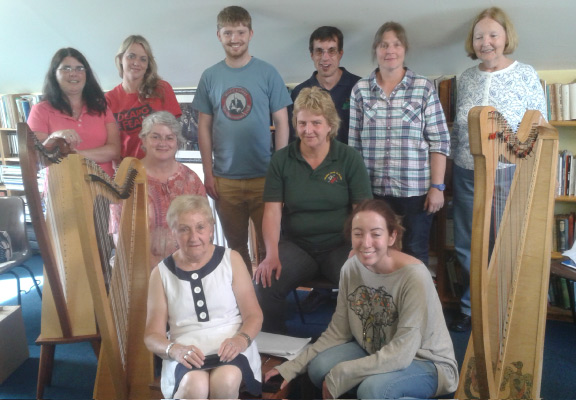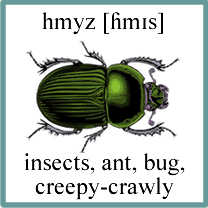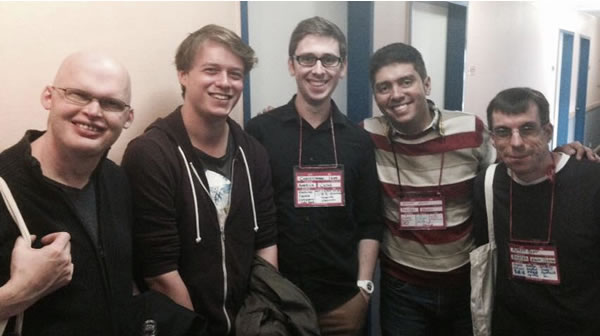This week and next week I am in Gleann Cholm Cille (Glencolmcille) in Donegal in the north west of Ireland. I’m doing courses at Oideas Gael, an Irish language and cultural centre: a harp playing course this week, and an Irish language and culture course next week.
This is my 11th visit to Gleann Cholm Cille, and the second year I’ve done the harp course. On the harp course page of the Oideas Gael site there are pictures of the harp group from last year – I’m third from the right in the first one, and in the middle at the back in the second one (see also below).

2014 Oideas Gael Harp class
This year we have a different teacher – a music student called Elsa Kelly, who also plays the flute. We’re learning some O’Carolan tunes and some other traditional Irish tunes, and it’s great fun.
I’ve been speaking plenty of Irish with people here – locals and students – and have also spoken bits of German, French, Scottish Gaelic, Dutch, Russian and Czech. People come here from all over the world to study Irish language, music and related subjects, so there are plenty of opportunities to practise languages.
So far the weather has been very mixed – cloudy and windy one minute, warm and sunny the next, then the rain starts, and it can go on all day and all night sometimes and be rather heavy. This is fairly typical for this part of Ireland, but local people are complaining that they haven’t had much of a summer this year yet.

